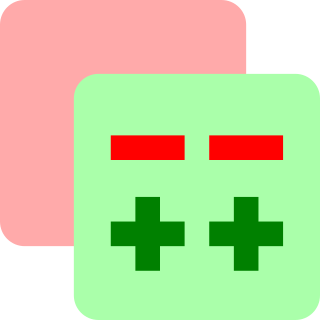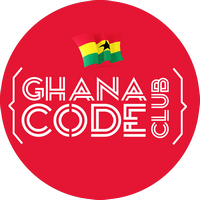 W
WAn algorave is an event where people dance to music generated from algorithms, often using live coding techniques. Alex McLean of Slub and Nick Collins coined the word "algorave" in 2011, and the first event under such a name was organised in London, UK. It has since become a movement, with algoraves taking place around the world.
 W
WA cheat sheet or crib sheet is a concise set of notes used for quick reference.
 W
WCode Club is a voluntary initiative, founded in 2012. The initiative aims to provide opportunities for children aged 9 to 13 to develop coding skills through free after-school clubs. As of November 2015, over 3,800 schools and other public venues established a Code Club, regularly attended by an estimated 44,000 young people across the UK. The organization also expanded internationally, and there are now over 13,000 Code Club operating worldwide. Volunteer programmers and software developers give their time to run Code Club sessions, passing on their programming skills and mentoring the young students. Children create their own computer games, animations and websites, learning how to use technology creatively.
 W
WCodecademy is an American online interactive platform that offers free coding classes in 12 different programming languages including Python, Java, Go, JavaScript, Ruby, SQL, C++, C#, Swift, and Sass, as well as markup languages HTML and CSS. The site also offers a paid "Pro" option that gives users access to personalized learning plans, quizzes, and realistic projects.
 W
WA computer program is a collection of instructions that can be executed by a computer to perform a specific task.
 W
WFrom the invention of computer programming languages up to the mid-1970s, most computer programmers created, edited and stored their programs line by line on punch cards.
 W
WCreative coding is a type of computer programming in which the goal is to create something expressive instead of something functional. It is used to create live visuals and for VJing, as well as creating visual art and design, entertainment, art installations, projections and projection mapping, sound art, advertising, product prototypes, and much more.
 W
WThe Deutsch limit is an aphorism about the information density of visual programming languages originated by L. Peter Deutsch that states:The problem with visual programming is that you can’t have more than 50 visual primitives on the screen at the same time.
 W
WEPANET is a public domain, water distribution system modeling software package developed by the United States Environmental Protection Agency's (EPA) Water Supply and Water Resources Division. It performs extended-period simulation of hydraulic and water-quality behavior within pressurized pipe networks and is designed to be "a research tool that improves our understanding of the movement and fate of drinking-water constituents within distribution systems". EPANET first appeared in 1993.
 W
WFlatiron School is an educational organization founded in 2012 by Adam Enbar and Avi Flombaum. The organization is based in New York City and teaches software engineering, computer programming, data science, and cybersecurity analytics. In 2017, the company was sued for making false statements about the earning potential of its graduates. Flatiron School was ranked the #1 coding school by Course Report. It was acquired by WeWork in 2017 and sold to Carrick Capital Partners in 2020.
 W
WA flowchart is a type of diagram that represents a workflow or process. A flowchart can also be defined as a diagrammatic representation of an algorithm, a step-by-step approach to solving a task.
 W
WfreeCodeCamp is a non-profit organization that consists of an interactive learning web platform, an online community forum, chat rooms, online publications and local organizations that intend to make learning web development accessible to anyone. Beginning with tutorials that introduce students to HTML, CSS and JavaScript, students progress to project assignments that they complete either alone or in pairs. Upon completion of all project tasks, students are partnered with other nonprofits to build web applications, giving the students practical development experience.
 W
WGerrit is a free, web-based team code collaboration tool. Software developers in a team can review each other's modifications on their source code using a Web browser and approve or reject those changes. It integrates closely with Git, a distributed version control system.
 W
WThe Ghana Code Club is an after-school program in Ghana, Africa, that teaches children computer programming skills. The program was founded by Ernestina Edem Appiah, and the program is organized in various schools by Healthy Career Initiative, a nonprofit organization in Ghana. Healthy Career Initiative was also founded by Appiah, in 2007. Ghana Code Club is a digital fun club that is being organized in schools in Ghana for children between the ages of 8–17. It is an after-school extracurricular program.
 W
WIn mathematics, an invariant is a property of a mathematical object which remains unchanged, after operations or transformations of a certain type are applied to the objects. The particular class of objects and type of transformations are usually indicated by the context in which the term is used. For example, the area of a triangle is an invariant with respect to isometries of the Euclidean plane. The phrases "invariant under" and "invariant to" a transformation are both used. More generally, an invariant with respect to an equivalence relation is a property that is constant on each equivalence class.
 W
WIxi lang is a programming language for live coding musical expression. It is taught at diverse levels of musical education and used in Algorave performances. Like many other live coding languages, such TidalCycles, ixi lang is a domain-specific language that embraces simplicity and constraints in design.
 W
WLive coding, sometimes referred to as on-the-fly programming, just in time programming and conversational programming, makes programming an integral part of the running program.
 W
WA macro in computer science is a rule or pattern that specifies how a certain input should be mapped to a replacement output. Applying a macro to an input is macro expansion. The input and output may be a sequence of lexical tokens or characters, or a syntax tree. Character macros are supported in software applications to make it easy to invoke common command sequences. Token and tree macros are supported in some programming languages to enable code reuse or to extend the language, sometimes for domain-specific languages.
 W
WMagic Bytes LLC is an American software development company and video game publisher. It develops software for immersive experiences in Virtual Reality and Augmented Reality for education, entertainment and training simulation. The company was founded in 2017 by Thomas Meiertoberens, who originally introduced the label Magic Bytes in 1987 for publishing the first video game adaptions of comic characters Clever & Smart, Pink Panther and Tom & Jerry.
 W
WMalware is any software intentionally designed to cause damage to a computer, server, client, or computer network. A wide variety of malware types exist, including computer viruses, worms, Trojan horses, ransomware, spyware, adware, rogue software, wiper and scareware.
 W
WMobileNotifier was a free open-source alert messaging system, written by Peter Hajas, for jailbroken iOS devices including iPhone, iPod touch, and iPad, for iOS 4.0. Mobile Notifier was written as a reproduction of Android notifications. It is currently released under the BSD License. The lead developer, Peter Hajas, left to work for Apple but the project was continued by other developers.
 W
WA Nassi–Shneiderman diagram (NSD) in computer programming is a graphical design representation for structured programming. This type of diagram was developed in 1972 by Isaac Nassi and Ben Shneiderman who were both graduate students at Stony Brook University. These diagrams are also called structograms, as they show a program's structures.
 W
WNational Computer Rank Examination (NCRE) is a national exam held by China Education Department to test the computer proficiency and programming skill of non-computer specialized students and practitioners. The programming language can be chosen by examinees, including C, C++, Java, Visual Basic and Python 3. NCRE is widely recognized by enterprises and organizations in China.
 W
WA signature program is a small, highly condensed piece of code, usually three or fewer lines in length which when compiled produces an interesting pattern or function that is not always obvious from the code.
 W
WSonic Pi is a live coding environment based on Ruby, originally designed to support both computing and music lessons in schools, developed by Sam Aaron in the University of Cambridge Computer Laboratory in collaboration with Raspberry Pi Foundation.
 W
WSwitchUp is an online coding and computing programing platform. Students use the website to research online and offline programming courses by reading alumni reviews, connecting with mentors in the forum, taking an online quiz, and reading industry studies. SwitchUp only accepts reviews from verified alumni and has a verification process.
 W
WTidalCycles is a live coding environment designed for musical improvisation and composition. In particular, it is a domain-specific language embedded in Haskell, focused on the generation and manipulation of audible or visual patterns. It was originally designed for heavily percussive, polyrhythmic grid-based music, but now uses a flexible, functional reactive representation for patterns, using rational time. Tidal may therefore be applied to a wide range of musical styles, although its cyclic approach to time means that it affords use in repetitive styles such as Algorave.
 W
WIn telecommunications and related engineering, the term timeout or time-out has several meanings, including:A network parameter related to an enforced event designed to occur at the conclusion of a predetermined elapsed time. A specified period of time that will be allowed to elapse in a system before a specified event is to take place, unless another specified event occurs first; in either case, the period is terminated when either event takes place. Note: A timeout condition can be canceled by the receipt of an appropriate time-out cancellation signal. An event that occurs at the end of a predetermined period of time that began at the occurrence of another specified event. The timeout can be prevented by an appropriate signal.
 W
WIn computing, tombstone diagrams consist of a set of “puzzle pieces” representing compilers and other related language processing programs. They are used to illustrate and reason about transformations from a source language to a target language realised in an implementation language. They are most commonly found describing complicated processes for bootstrapping, porting, and self-compiling of compilers, interpreters, and macro-processors.
 W
WYoung Rewired State was an organisation based in the United Kingdom, which ran events and schemes for technically gifted young people aged 18 and under. It brought together young developers, designers, and those with other technical skills to build projects to attempt to solve real world problems. Many developers who participated in Young Rewired State events learned coding skills outside the traditional school curriculum.